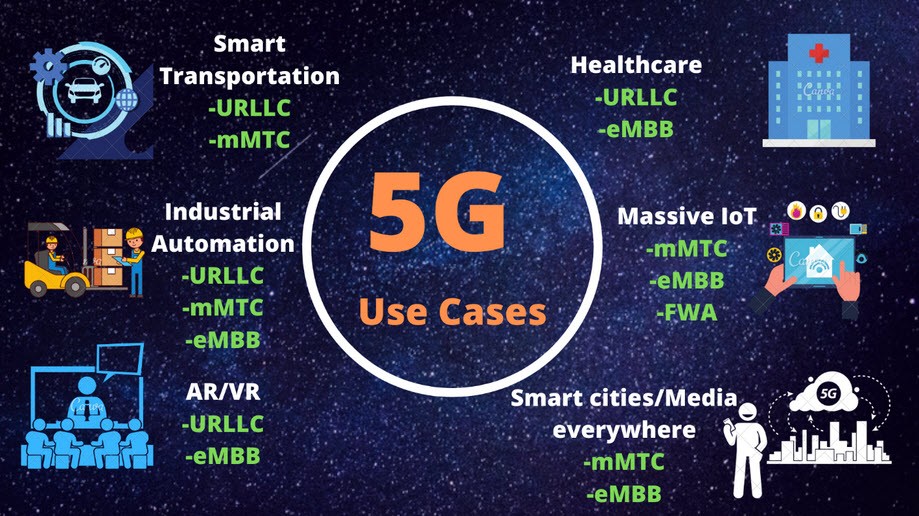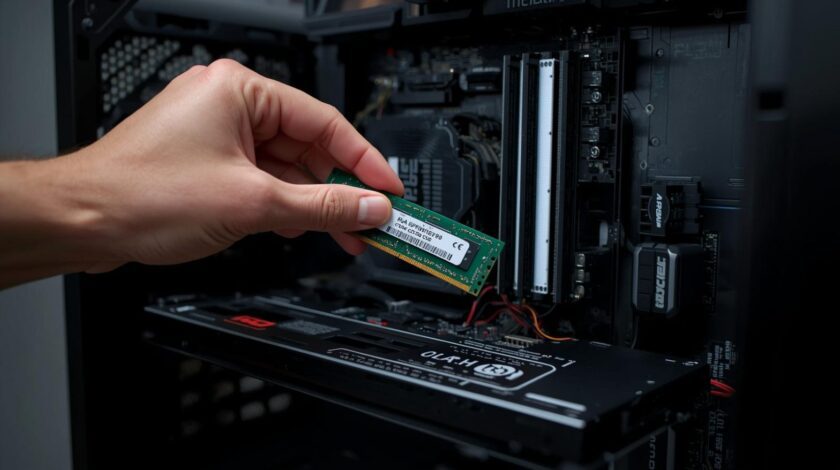The impact of 5G goes beyond just faster internet speeds, influencing multiple industries and transforming the way we live, work, and interact with technology. Its advanced capabilities—such as ultra-low latency, massive device connectivity, and high data speeds—enable a wide range of new applications and opportunities across different sectors. Here’s a breakdown of 5G’s impact:
1. Revolutionizing Mobile Experiences
- Faster Internet and Streaming: 5G offers speeds up to 100 times faster than 4G, enabling seamless streaming of 4K and 8K videos, faster downloads, and better overall mobile experiences.
- Enhanced Gaming: Low latency (as low as 1 millisecond) makes real-time, cloud-based gaming more accessible, providing smoother experiences in online multiplayer games, augmented reality (AR), and virtual reality (VR).
Impact: Users will enjoy enhanced entertainment and communication, with real-time responsiveness and ultra-high-definition media streaming.
2. Enabling the Internet of Things (IoT)
- Massive Device Connectivity: 5G can support up to 1 million devices per square kilometer, which is crucial for IoT networks that connect smart devices in homes, cities, and industries.
- Smart Cities: 5G supports the deployment of sensors, cameras, and smart infrastructure that can improve traffic management, energy consumption, public safety, and environmental monitoring.
Impact: The proliferation of IoT will lead to smarter, more efficient cities and businesses, with devices communicating seamlessly to automate processes and enhance everyday life.
3. Transformation of Healthcare
- Telemedicine and Remote Healthcare: 5G’s high speed and low latency allow for high-quality video consultations, real-time health monitoring, and even remote surgeries, where doctors can perform procedures using robotic tools from different locations.
- Wearable Devices: 5G will enable real-time data transmission from wearables, providing doctors with continuous health data to monitor patients remotely.
Impact: Healthcare will become more accessible and responsive, improving patient outcomes by enabling quicker diagnostics, remote treatments, and better access to specialists.
4. Advancing Autonomous Vehicles
- Vehicle-to-Everything (V2X) Communication: 5G facilitates the fast exchange of data between vehicles, infrastructure (traffic lights, road sensors), and pedestrians, ensuring safe and efficient driving.
- Autonomous Driving: The low latency of 5G is essential for real-time data processing and decision-making, enabling safer autonomous vehicles that can react instantaneously to changes in road conditions or hazards.
Impact: 5G will accelerate the development and deployment of autonomous vehicles, reducing traffic accidents, congestion, and emissions, and making transportation more efficient.
5. Industry 4.0 and Smart Manufacturing
- Automation and Robotics: 5G supports industrial automation by enabling real-time control of robots, drones, and machinery in manufacturing, allowing for increased efficiency and precision.
- Predictive Maintenance: Connected sensors can monitor equipment in real-time, using 5G networks to detect faults before they cause downtime, thus reducing maintenance costs and improving productivity.
Impact: Factories will be more connected and efficient, with automation and robotics driving productivity gains and reducing operational costs in manufacturing, agriculture, and other industries.
6. Enhancing Remote Work and Collaboration
- Faster Connectivity: 5G’s high-speed internet and low latency make remote work more efficient by supporting high-quality video conferencing, cloud-based applications, and virtual collaboration tools.
- Immersive Collaboration: With 5G, businesses can leverage AR and VR technologies to create virtual workspaces, allowing teams to collaborate in real-time regardless of location.
Impact: Remote work will become more seamless and productive, enabling businesses to operate efficiently with a distributed workforce.
7. Transformation of the Entertainment Industry
- Immersive Experiences: 5G enables real-time streaming of AR and VR content, providing more immersive experiences in gaming, education, and entertainment.
- Live Events and Sports: Enhanced connectivity allows for interactive, multi-angle viewing of live events and sports in high definition, creating personalized viewing experiences for users.
Impact: Entertainment will shift towards more interactive, personalized, and immersive experiences, transforming how people consume media and participate in events.
8. Boosting Innovation in Education
- Immersive Learning: 5G will enable real-time, immersive learning through AR/VR, allowing students to engage in virtual classrooms, explore virtual worlds, or conduct complex simulations remotely.
- Remote Learning: 5G will enhance the quality of remote education with low-latency, high-resolution video, and better interaction between students and teachers, making education more accessible.
Impact: 5G will improve the quality and accessibility of education, bridging the gap between students in urban and remote areas.
9. Financial Services and Fintech
- Real-Time Transactions: 5G enables faster and more secure financial transactions, facilitating high-frequency trading, mobile banking, and blockchain technology.
- Mobile Payments: With 5G, mobile payment systems will be more responsive and reliable, supporting the expansion of cashless societies and digital wallets.
Impact: 5G will increase efficiency in financial transactions, supporting faster payments, more secure transactions, and the adoption of emerging technologies in finance.
10. Enhanced Cybersecurity
- Improved Security Protocols: 5G networks come with enhanced security features, such as encryption and secure authentication, which will help reduce the risks of cyberattacks.
- Edge Computing: 5G enables edge computing, where data is processed closer to the source (devices or sensors), reducing the risk of data breaches during transmission.
Impact: Stronger cybersecurity will support the safe and secure deployment of 5G technologies across industries, ensuring privacy and data integrity.
Conclusion:
The impact of 5G extends far beyond just faster internet speeds. It will drive innovation across industries, enabling new technologies and transforming sectors like healthcare, transportation, manufacturing, entertainment, and education. 5G’s ability to connect devices, people, and systems more efficiently and reliably will usher in a new era of smart technologies, enhanced communication, and unprecedented business opportunities.






